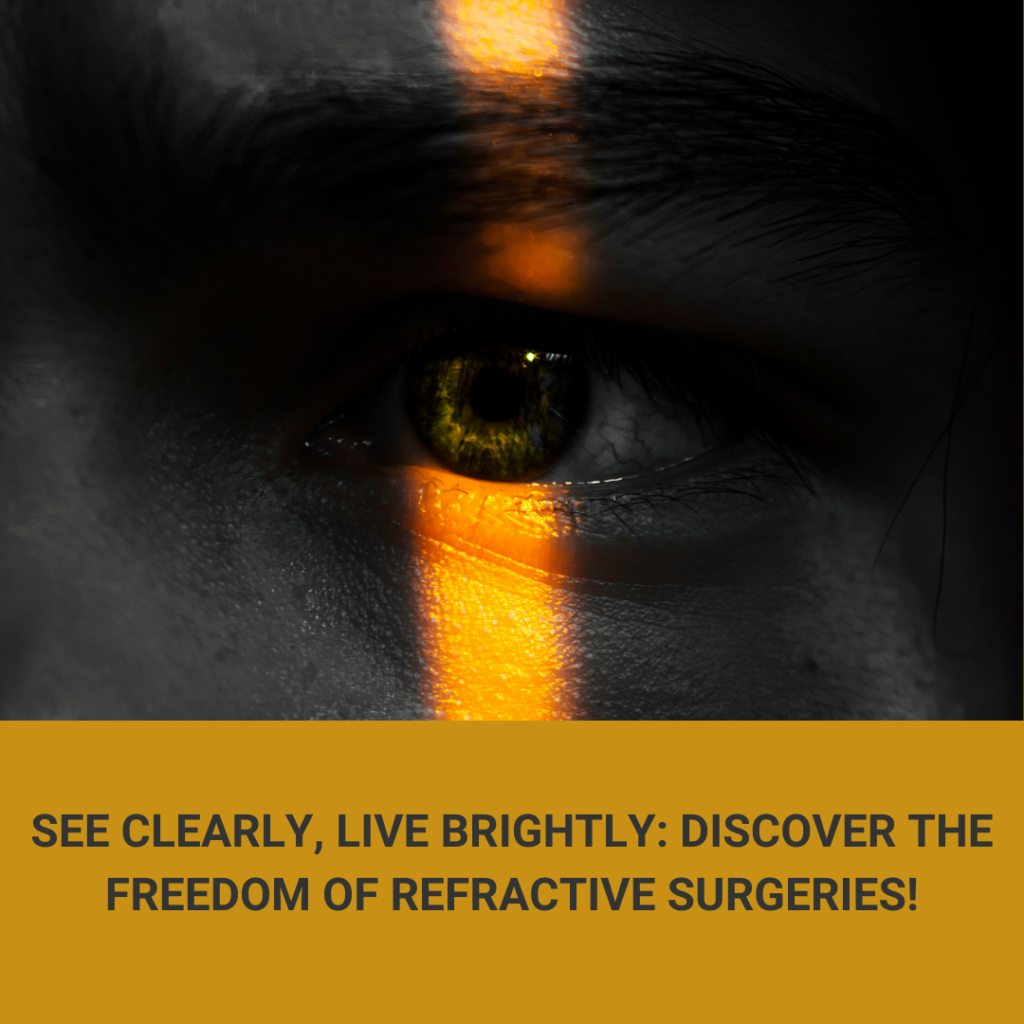Cataracts occur when the eye's natural lens gets obscured, resulting in blurred vision and, eventually, vision loss if left untreated. This clouding usually appears gradually and can damage one or both eyes.
Causes of Cataract
Several causes may lead to the development of cataracts, including:
- Cataracts are most typically connected with ageing, and the risk increases as you age.
- UV Radiation: Prolonged exposure to UV radiation from sunshine can hasten the development of cataracts.
- Trauma: Eye injuries can lead to the development of cataract.
- Some medical issues, such as diabetes and hypertension, might raise the risk of cataracts.
- Genetics: People with a family history of cataracts may be more likely to develop them.
Symptoms of cataracts:
Cataract symptoms vary according to severity, but frequent indicators include:
- Blurred or foggy vision
- difficulty seeing in low light settings.
- Increased susceptibility to glare.
- Double vision in one eye.
- Colour perception changes.
- Frequent changes in eyeglass prescription.
Diagnoses and Treatments:
An ophthalmologist often performs a complete eye examination to diagnose cataracts. Treatment choices are based on the severity of cataracts and how much they interfere with everyday activities.
- Glasses or Contact Lenses: In the early stages, vision correction using glasses or contact lenses may be adequate to alleviate symptoms.
- Cataract surgery removes the clouded lens and replaces it with an artificial intraocular lens (IOL). This treatment is quite successful, with few dangers and rapid recovery.
- Lifestyle Changes: Shielding your eyes from UV radiation, eating a nutritious diet, and addressing underlying medical issues can all help prevent or reduce the growth of cataracts.
Cataracts are a common age-related disorder that, if not addressed, can severely impair vision. However, with early identification and adequate treatment, most persons with cataracts may restore clear vision and resume their regular activities without difficulty. If you have cataract symptoms, you should see an eye care specialist for an assessment and specific treatment options. Remember that protecting your vision is critical to having an excellent quality of life as you age.




